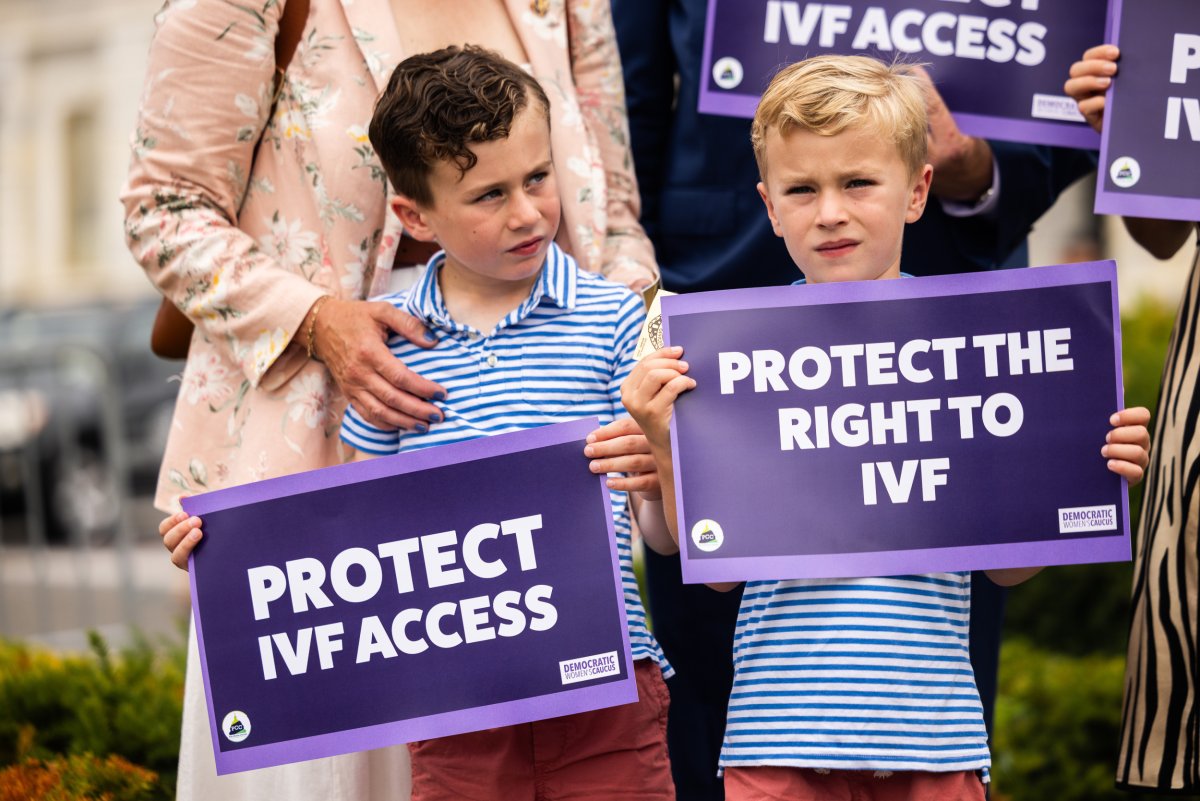Alan Wolpert tied the knot in his early 40s, while his wife was in her early 30s—making her pregnancy a high-risk one by medical standards. Seeking guidance, the couple consulted a specialist at New York University after experiencing heartbreaking losses and considered using donor eggs as their best hope for a healthy baby.
“It was a tough road, but ultimately it worked out for us,” Wolpert shared. They successfully welcomed their son, and later, through the freezing of embryos, had their daughter as well.
Amid his journey, Wolpert is worried about current political debates surrounding in vitro fertilization (IVF). With growing concerns that a second term for Donald Trump could threaten IVF access, both parents and specialists stress that this issue is pro-family, contrary to what some politicians claim. “We feel extremely lucky to have two healthy kids,” he remarked, adding that it’s disheartening for politicians to interfere in family-building processes.

Photo by Tierney L. Cross/Getty Images
Polling data indicates that a significant majority—86%—believe IVF should remain legal for those trying to conceive. However, concerns remain that political moves could lead to restrictions on this crucial service.
Understanding IVF
IVF, or in vitro fertilization, involves fertilizing an egg with sperm outside the body, then transferring the embryo into the uterus. This procedure plays a pivotal role in addressing infertility, using surrogacy, and conducting genetic testing. According to research, between 2017 and 2019, about 10% of women aged 15 to 44 sought fertility services.

Justin Sullivan/Getty Images
Recently, political figures have made headlines, with the Alabama Supreme Court ruling to suspend local IVF programs, raising alarms from public figures like Trump, who claimed he wanted to facilitate family growth, not hinder it. Yet, the Harris-Walz campaign pointed out his history of appointing anti-IVF judges, casting doubt on his sincerity.
“Women relying on IVF are scared of government interference with their fertility,” said Sarafina Chitika from Harris’s campaign. She added that this concern isn’t just hypothetical; it reflects fears from many families nationwide.
Wolpert noted that adoption, often suggested as an alternative, can be just as complicated and discouraging. He found IVF was the best course for his own family. “It’s a difficult emotional process, and then dealing with adoption policies can make it feel even harder,” he explained.
For Gov. Tim Walz, this issue strikes a personal chord. He and his wife endured a difficult seven-year journey with fertility treatments before bringing their daughter, Hope, into the world, a name chosen to reflect their aspirations through challenging times. “It’s a personal struggle that many families face,” Walz shared at a rally.

Michael Ciaglo/Getty Images
People like Wolpert and Walz, who have experienced IVF, believe passionately that support should remain strong. “It’s a shame some politicians lack understanding of what families go through,” Wolpert said, expressing a hope for greater empathy from those in power.
Several health professionals acknowledge the similar stress levels experienced by IVF patients to those facing cancer diagnoses, emphasizing the need for more compassionate discourse surrounding fertility treatments. “It adds unneeded pressure to an already emotional journey,” noted a healthcare provider.
Ulterior motives politicians hold regarding IVF policies also face scrutiny, as many families are left wondering about their options and rights as they navigate this complex landscape. “The stakes are high, especially if we consider moving or what our future holds,” one patient mentioned.
Swanson, who also experienced IVF, declared that it’s crucial for patients to feel supported throughout the process. “We must focus on easing their stress, not compounding it.”
In light of the challenges posed in this political climate, both Wolpert and Walz advocate for proactive measures to protect reproductive health care rights. “We need to move forward for all families looking to build their futures,” Walz said, emphasizing hope over fear.
